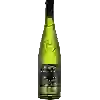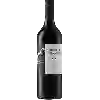
Cave de l'OrmarinePiquepoul Extra Brut
This wine generally goes well with
Wine flavors and olphactive analysis
On the nose the Piquepoul Extra Brut of Cave de l'Ormarine in the region of Languedoc-Roussillon often reveals types of flavors of citrus, apples or fennel and sometimes also flavors of tree fruit, spices or citrus fruit.
Details and technical informations about Cave de l'Ormarine's Piquepoul Extra Brut.
Discover the grape variety: Bargine
This grape variety was formerly cultivated in the Jura and is said to have made the reputation of the Château-Châlon appellation. Today, it is no longer present in the vineyard.
Last vintages of this wine
The best vintages of Piquepoul Extra Brut from Cave de l'Ormarine are 2017, 2015, 2014
Informations about the Cave de l'Ormarine
The Cave de l'Ormarine is one of of the world's greatest estates. It offers 65 wines for sale in the of Languedoc to come and discover on site or to buy online.
The wine region of Languedoc
Languedoc (formerly Coteaux du Languedoc) is a key appellation used in the Languedoc-Roussillon wine region of southern France. It covers Dry table wines of all three colors (red, white and rosé) from the entire region, but leaves Sweet and Sparkling wines to other more specialized appellations. About 75% of all Languedoc wines are red, with the remaining 25% split roughly down the middle between whites and rosés. The appellation covers most of the Languedoc region and almost a third of all the vineyards in France.
The wine region of Languedoc-Roussillon
Languedoc (formerly Coteaux du Languedoc) is a key appellation used in the Languedoc-Roussillon wine region of southern France. It covers Dry table wines of all three colors (red, white and rosé) from the entire region, but leaves Sweet and Sparkling wines to other more specialized appellations. About 75% of all Languedoc wines are red, with the remaining 25% split roughly down the middle between whites and rosés. The appellation covers most of the Languedoc region and almost a third of all the vineyards in France.
The word of the wine: Bite
Said of a wine with exacerbated acidity.













